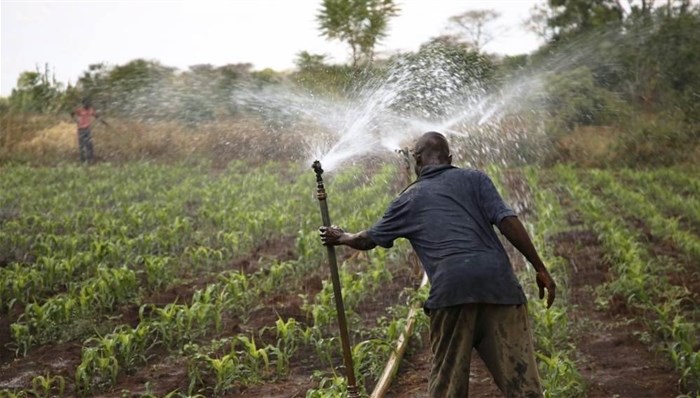Irrigation earns flood-prone farmers US$4,344 a hectare

According to researchers, several African communities in areas prone to floods grow crops in soils left behind by floods — a practice called flood recession agriculture — and thus they aimed to identify conditions under which this practice yields maximum benefits in northern Ghana.
"As a low-input, less fertiliser… agricultural practice, flood recession agriculture can help farmers increase food production and thereby enhance food security," says Bedru Balana, co-author of the study and a senior research scientist at the International Food Policy Research Institute.
As a low-input, less fertiliser… agricultural practice, flood recession agriculture can help farmers increase food production and thereby enhance food security.” - Bedru Balana, International Food Policy Research Institute.
The study published in the July issue of Agricultural Systems says that promoting flood recession agriculture has the potential to reduce seasonal migration during the dry season to cities.
Balana tells SciDev.Net that the study involved obtaining farm-level data such as agricultural water management, crop types, crop yields and sale of agricultural produce from two rounds of surveys with more than 300 randomly selected smallholders in August 2016 and February 2017, and two rounds of focus group discussions in flood-prone areas of northern Ghana.
Using a modelling approach, the researchers estimated the optimum benefits of practising flood recession agriculture.
Findings from the study show that in a low rainfall scenario, the total estimated net cash income of a representative household that relied on rainfall was US$316 per hectare whereas supplementary irrigation yielded US$4,344 per hectare.
Combining cowpea, groundnut and melon with high-value cash crops such as onion, pepper and tomato would optimise household income and enhance food security, Balana says.
"The cash income generated from the sale of cash crops will be sufficient to buy up to three months of food to reduce an average household's food insecurity" explains Balana.
Balana tells SciDev.Net that despite the potential of flood recession agriculture along the floodplains of northern Ghana, the government has not given sufficient attention to promote it.
Baba Inusa, an irrigation agronomist at the Savanna Agricultural Research Institute, Ghana, lauds the researchers for collecting both survey and focus group discussion data at multiple times, and says that the positive outcomes of flood recession agriculture identified by the study are not surprising,
"Floods cover vast extent of fertile land that could be cultivated with no need for fertiliser because of the nutrients that the floods leave behind," explains Inusa.
If policymakers do not adequately support flood recession agriculture with irrigation and other inputs such as improved seeds, it will be a huge loss to smallholders and the country, he adds.
This piece was produced by SciDev.Net’s sub-Saharan Africa English desk.























